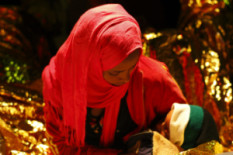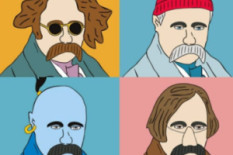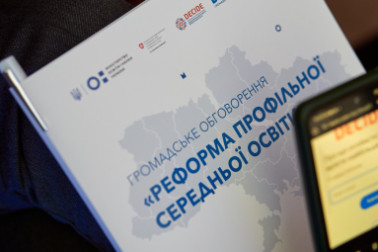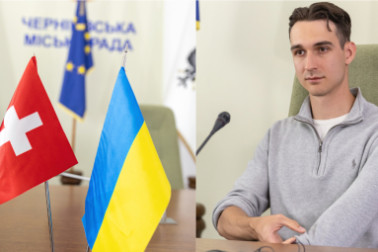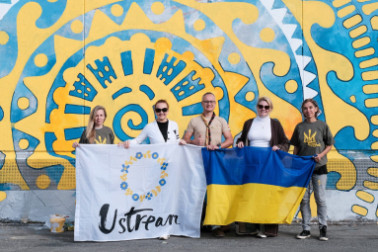Taras Shevchenko is a phenomenal figure who always influences the lives of Ukrainians, especially in historically significant times, as it was during the Revolution of Dignity, as it is now, when Ukraine is in a full-scale war. He is always very modern, because his work reveals the codes of the nation, the Ukrainian spirit in all its manifestations. And this is about timelessness, and therefore, modernity. Different generations can and do read their own.
So we talked to Oksana Taranenko, the stage director of the Odesa National Opera and Ballet Theater, which is staging Shevchenko's famous «Kateryna» and recreating an aesthetic that is both extremely modern and archetypal.
![]()
Oksana Taranenko
What is the power of Shevchenko's image? For 210 years now, he has remained our support, in a way, the core of the nation, a guide in difficult times, and this despite the stereotypical images that have been inspired for a long time?
I want to say, first, that I am not an art critic or a literary critic, I am a director who realized his work, so I will simply offer my research and personal vision, which means that they are very subjective.
I would rather talk not so much about the power of the image as about the power of Taras's personality. Because the image is, to a certain extent, a trap. During the Soviet era, everything connected with Ukraine had a certain look from above, imperial superiority, and signs of inferiority that had been imposed on us all for a long time. It has gotten under the skin of all Ukrainians to such an extent that it is even strange for us to look for where it is, how to push back against it, and what the real Ukrainian is.
In my work, especially after 2014, and even more so after February 2022, I have always thought about what Ukrainianness in art is, why it is like this, and whether it really should be like this.
And it was either heroic or somehow clumsy, funny, half-drunk, under the fence...
And very wistful...
Or very wistful... It was something exotic for an appetizer, not something that would be fascinating to explore.
And it was very disappointing to realize that there are certain established traditions of interpreting Ukrainian stage works-they necessarily had certain templates.
The very fact of this realization was important to me. And then I began to search for an answer to the question: what should Ukrainian images, and Shevchenko's in particular, really be like?
I realized that Taras was the first person who began to realize what Ukrainianness was and began to speak honestly about it.
Because already in imperial times, Ukrainians themselves looked down on themselves with the empire's gaze.
And Taras was the first to allow Ukrainians to look at themselves with love.
He looked at Ukrainians with love himself.
He explored who we are. Somewhere we are ruffians, and somewhere we are very wistful and perhaps irresponsible, we are united with our land and very honest, and somewhere we are real warriors and magicians.
And the «Kateryna» opera, which we staged at the Odesa National Opera and Ballet Theater in 2022, is about this vision.
We have been working on the production for a long time. Oleksandr Rodin, the author of the music and libretto, wrote it for two years. It so happened that the premiere was postponed due to the Covid epidemic, and we had a lot of time to work on everything.
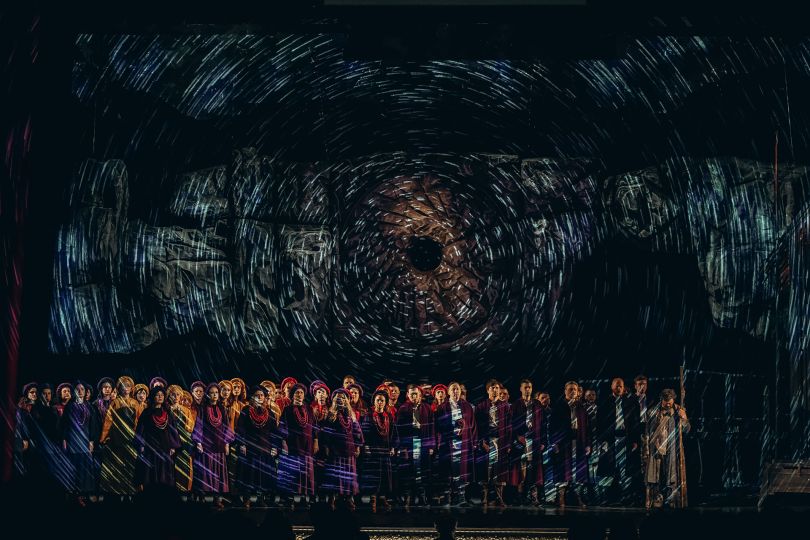
Tell us a little more about your «Kateryna»
The work consists not only of the «Kateryna» poem, but also of various poems by Shevchenko.
It was very interesting for me to re-read all these works as an adult contemporary person who wants to understand what codes Taras deciphered.
Nowadays, the concept of emotional intelligence is in trend. So here's what I'll say: Taras possessed it completely. He was probably the first literary author to study the emotional intelligence of Ukrainians.
He allowed Ukrainians to cry, to feel pain, to experience love. He allowed them to be who they are. He is really like a father to Ukrainians, but not the one who stands with a stick to tell us what each of us should be, what is right and what is wrong, which, by the way, is typical of other literature, say, German or French. His works were filled with sincerity and parental love.
And I want to pay special attention to one of his works that is used in the opera. It is a poem about the lyre player «Perebendya». In my opinion, this is a description of a Ukrainian magician, a wandering magician like Gandalf, who travels, sees everything, sings and tells stories. He spends the night in a cemetery and talks to the wind, and then his song is carried by the wind across Ukraine.
This is, in fact, a molfar, a real Ukrainian molfar.
In the Ukrainian tradition, a molfar is a healer, wizard and fortune-teller.*
I think that Taras himself combined this Ukrainian molfarism with high intelligence and high education, which he was lucky enough to receive even in imperial conditions.
He combined education and something so deeply Ukrainian that we feel in our souls. And this is what makes his personality so powerful.
He was born and lived at a time when it was a shame to be called a Ukrainian. But he was not ashamed. He even suffered for it. But it was his conscious choice to be a Ukrainian.
The next generations of artists had it easier. The composer Lysenko and the historian Hrushevsky became Ukrainians on prepared ground. And he simply was one. Taras was like a rock, a Ukrainian one.
He became the foundation of everything Ukrainian...
Yes, and it seems to me that what prevents us from perceiving Shevchenko correctly now, is the Soviet and, before that, the imperial view of him.
How can we get rid of this?
You just need to read everything he has, but with your heart, not your mind. And then it will become clear what kind of Shevchenko is close to each one of us now: either you are a warrior, or the one who allows you to cry, or the one who is carried along with the wind over the steppes.
Or a sorcerer.
Or a sorcerer. Yeah.
I often hear from young people that Shevchenko is too sad, only tears, they don't want to read. But on the other hand, we see that he is constantly present in historically significant periods: on the Maidan, during the invasion of 2014, and now. That is, it is modern, it is relevant. And there is a certain contradiction in this — as if some people have recognized Kobzar, while others still do not understand him. What do you think the latter should do to see his timelessness?
You know, we worked with artists who play very different roles, and they all read Shevchenko. All of them were modern people, some of them younger than me, and they understood everything.
When you love what you do, and when you present it in an interesting way, everyone accepts it.
We just need to get rid of this delusion, you know, the delusion that Shevchenko is an old man in a smusha hat and a coat, to remove this template.
Perhaps we can do flash mobs, look for poems that literally describe our days, that coincide with our sense of what is happening in Ukraine now.
You can learn them by heart, or just look at the works through modern optics, using modern methods.
He was very fashionable, trendy, educated, and knew many languages.
You just have to read him and look for your own. This is the easiest way.
You know, I love poetry very much. I know contemporary poetry: I read Kateryna Kalytko, last year's Shevchenko Prize winner, I love Serhiy Zhadan, Dzvinka Torokhtushko, and Kateryna Babkina. You should always look for those poems that describe what you want to say. Because poetry, like music, speaks to the subconscious. It's not about logic.
What is the most valuable thing about your «Kateryna» for you? What insights did you get in the process?
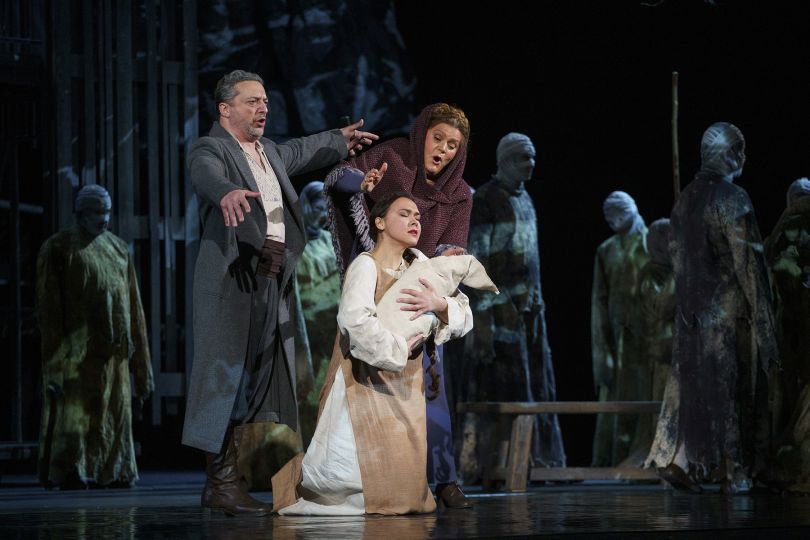
We had two tasks.
The first one was to break the trend of fake, puffy clothes and convey Ukrainian culture without these layers. And we were looking for aesthetics. I believe we succeeded in this — Oleksandr Rodin's music is very modern, interesting, deep, and rich.
Together with Igor Anisenko, a scenic and costume designer, we were looking for a golden mean for a very long time — when it would become clear that this is Ukrainian, without any reminder of the Soviet tradition.
And in the end we turned to the deep pre-culture, its aesthetics, images and archetypes that Ukrainians have understood since pre-Christian times. We are autochthonous — we have been living on this land for many, many hundreds of years.
No one invented us, not the Austro-Hungarian leaders, not Lenin...
Yes. We were here in ancient times.
And when we immersed ourselves in the pre-culture, everything immediately fell into place, and we found this aesthetic.
We have an image of an old mill without a sail, where all the events take place. It travels around, it is so mysterious and very magical.
Oleksandr Rodin came up with a nativity scene with 7 characters who actually tell the story of Kateryna. All of them live in this magical mill, they are covered with flour, as if with stardust-all in the same style and look like a family. There are different archetypes there, from Angel to Death. And I think this team is very, very successful.
Our second task was to show Ukrainians the community in which Kateryna's story unfolds.
Taras Shevchenko was a romantic, and like every romantic, he was looking for extreme expressions of human nature and emotions. But in fact, there was no custom in Ukraine to throw out a «pokrytka», or unmarried and pregnant woman, from the house. Maybe there were just two or three cases. In the opera, we had to explain to the modern audience how this is possible.
We had to understand and show what kind of family they are, what kind of conditions they live in, and what kind of community allows such things.
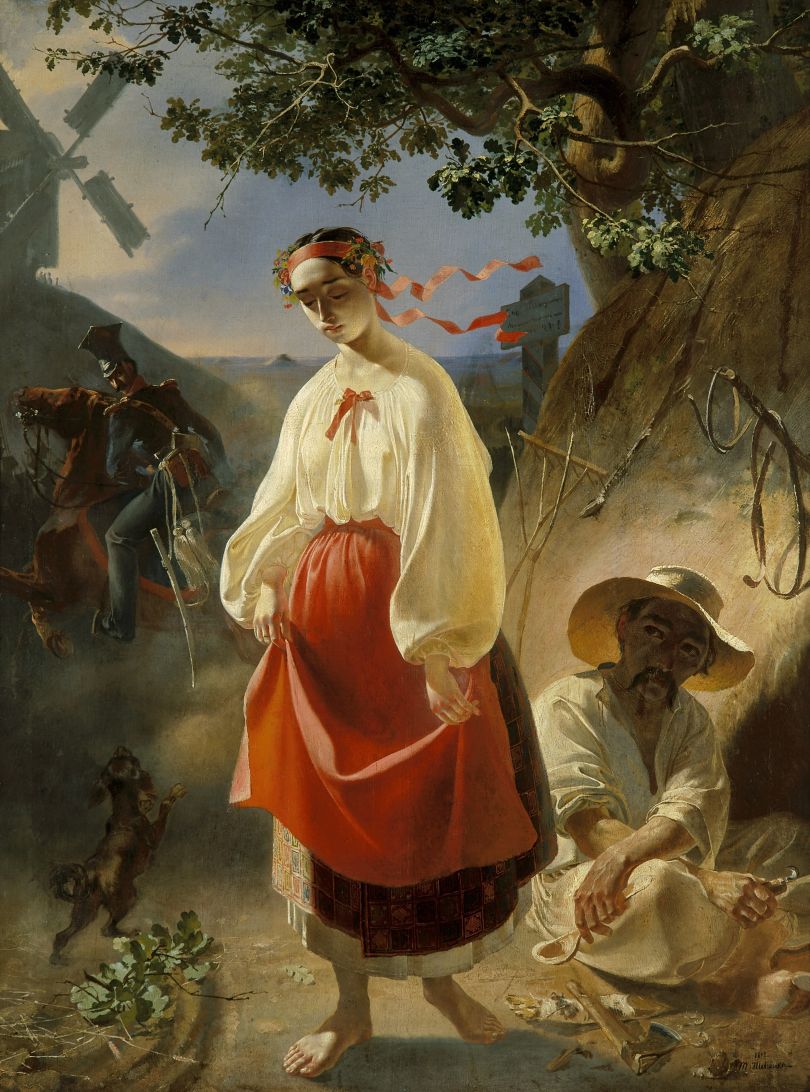
«Kateryna» 1842. T. Shevchenko
In addition, our Kateryna is very different from the canonical image of a victim and a woman enslaved by society. She doesn't give up, believes in her love, goes to it long and hard with a child in her arms. She believes that she loved the right person and that having a son was the best decision she could have made. And she doesn't give up until the end. It's just that when the circumstances were such that she had no choice, she did what she did…
But with this work we want to say:
Yes, she made that choice then. But never again. We will never allow women in Ukraine to be enslaved and victimized again. It will never happen again!
So you made a significant contribution to the modernization of Shevchenko.
Undoubtedly, this was one of our main tasks.
And you have added the positive that Shevchenko seems to lack. You have a struggle, your own path and experience.
The first performer, Yulia Tereshchuk, is to be commended for this. Her Kateryna is beautiful. When she sings and plays this role, I don't know what happens in the audience, but people cry without stopping, and then they feel cathartic and truly elated.
Do you think your «Kateryna» is understandable to young people?
Absolutely. We used such cultural codes and archetypes that coincide with what young people understand today. For example, the lyre player Perebendia is a Ukrainian Gandalf, our tavern-keeper, gypsy, witch — as if they were characters from the Ukrainian Marvel universe. They behave like modern people, the logic of their behavior is clear.
And the picture is very vivid — a 3D picture. In general, we have a lot of effects that can really interest the younger generation.
We tried to tell Kateryna's story, which is so easy to join emotionally, in a modern stage language. I think we succeeded.
The chorus plays a huge role, there are a lot of dressings, costumes, mise-en-scène, they dance and sing. But you know, talking about opera is a very thankless task, you have to listen to it. Music really just gets under your skin, into your heart, into your ears and into your head.
Is there any talk of going on tour, at least in Ukraine?
It is very expensive. We need big stages, because 150 people take part in the opera. There are only two stages in Kyiv where we can perform, not to mention other cities.
And this is a huge budget. But we are making efforts to find such an opportunity. However, there are more important things at the moment.
To what extent can your «Kateryna» and Shevchenko himself be understood by a foreign audience?
Unfortunately, Europeans know little about Ukrainians, and we can say that this is our fault, because we did not initiate active cultural expansion, as our northern neighbors did. There is an explanation for this, of course. But it seems to me that now Ukrainians as a nation deserve a little more interest from our European friends, who are already a little tired of the war and are trying to be «neutral» and distance themselves from what we are living through.
But I want to say that Ukrainians have a very special, unique trait. We are probably the only nation in the world that is not afraid of Russians, not afraid of this Moloch. All the others are afraid or are in a haze of great so-called culture. But in reality, we can see what it has led to. Behind every culture there are cultural codes, and behind them certain values, and it is these values that allow people to do what they are doing in Ukraine now-robbing, killing, torturing.
So, maybe it's time for our friends abroad to rethink and re-consciously understand what's really behind this culture. And they just need to find a little time and show interest in Ukrainian culture, and then the grace of Ukrainian music, history, painting, poetry will just flow to them...
Well, in this context, Shevchenko can be a guiding star for understanding.
He is very multifaceted, he is also an academician of painting and engraving, so you can start your acquaintance with him. Or just read his poetry, or ask about his biography or philosophical thoughts. And about his exile, his stay in St. Petersburg, his life in Ukraine, how Shevchenko was perceived by his contemporaries, how he was buried, and what his «Testament» is, what it means to us... I think this deserves attention.
The main thing is that this desire should arise, and our task is to help it a little.
I am a bit pessimistic because I have been trying to break through this wall for two years... I would advise all representatives of Ukrainian culture to demonstrate the absolute integration of Ukrainians into Europe, both in terms of education and values.
For a long time we lived in the same way as Europeans. We had the Magdeburg Law, our composers studied at Italian universities, just like other European artists of the 18th and 19th centuries. We need to convey the idea that Ukrainian art is not exotic, as they say in modern Europe. It is European art.
Shevchenko is a romantic. He is very similar to Byron and Schiller. He is also carried by his romantic spirit and is an absolutely organic part of the European romantic tradition.
It takes a lot of effort and big budgets to change the prejudices of Europeans, but for now we are doing what we can do.
And for starters, you can just come to Odesa to see «Kateryna».
I invite everyone. You can see «Kateryna» on March 27, the International Day of Theater. Find an opportunity to come to Odesa, because we don't know how much longer we will last...
The author of the main photo is Oleksandr Hrekhov, an illustrator.
